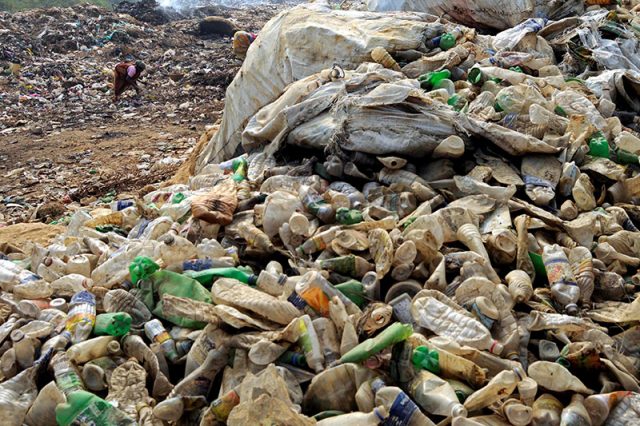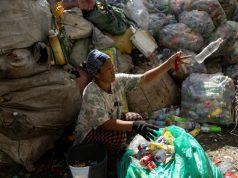
SINGAPORE — Recycling will not be able to contain a runaway global plastic waste crisis, experts said on Friday as they called on companies to reduce plastic production and shift more products into reusable and refillable packaging.
Moving away from single-use plastics and towards systems that allow for it to be reused are among the solutions that experts believe could ease the problem, but radical changes to the production system are also needed.
“We won’t be able to just recycle or reduce our way out of it,” said Rob Kaplan, CEO of Circulate Capital, which invests in emerging markets initiatives to solve the plastic waste crisis.
“It’s a systems problem and needs to combine upstream and downstream solutions,” he said, speaking on a panel at the Reuters Next conference.
The world produces around 300 million tonnes of plastic waste every year, according to the United Nations Environment Program.
But less than 10% of all the plastic ever made has been recycled, in large part because it is too costly to collect and sort. The rest ends up dumped or buried in landfills or burned.
As recycling schemes falter, big consumer goods companies, including Unilever, Coca-Cola and Nestle, have started investing in projects to burn plastic waste as fuel in cement kilns, Reuters revealed in October.
Meanwhile, plastic production is projected to double by 2040 — something many critics of the industry believe is excessive and the biggest driver of the huge waste problem facing the planet.
“Recycling can’t compete with overproduction,” said Von Hernandez of the Break Free from Plastic campaign, a global alliance calling for an end to plastic pollution.
“So what we need is limits on virgin plastic production,” he said, speaking alongside Kaplan on the panel.
While there is no global regulator or treaty for the plastics industry, the panel speakers said individual consumers can help drive the changes needed in corporate behavior and hold companies accountable through the life cycle of their plastic products and where they end up.
“Citizens and consumers can compel these companies… to reveal their global plastic and carbon footprint, reduce the amount of plastic they are producing and deploying to the market, and really reinvent their delivery systems,” Hernandez said. — Editing by Ana Nicolaci da Costa









